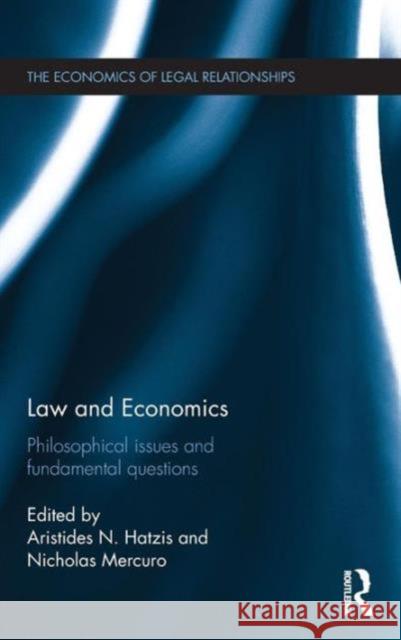Law and Economics: Philosophical Issues and Fundamental Questions » książka
Law and Economics: Philosophical Issues and Fundamental Questions
ISBN-13: 9780415404105 / Angielski / Twarda / 2015 / 364 str.
Law and Economics: Philosophical Issues and Fundamental Questions
ISBN-13: 9780415404105 / Angielski / Twarda / 2015 / 364 str.
(netto: 761,05 VAT: 5%)
Najniższa cena z 30 dni: 730,42
ok. 30 dni roboczych.
Darmowa dostawa!
The Law and Economics approach to law dominates the intellectual discussion of nearly every doctrinal area of law in the United States and its influence is growing steadily throughout Europe, Asia, and South America. Numerous academics and practitioners are working in the field with a flow of uninterrupted scholarship that is unprecedented, as is its influence on the law. Academically every major law school in the United States has a Law and Economics program and the emergence of similar programs on other continents continues to accelerate. Despite its phenomenal growth, the area is also the target of an ongoing critique by lawyers, philosophers, psychologists, social scientists, even economists since the late 1970s. While the critique did not seem to impede the development of the field, it certainly has helped it to become more sophisticated, inclusive, and mature. In this volume some of the leading scholars working in the field, as well as a number of those critical of Law and Economics, discuss the foundational issues from various perspectives: philosophical, moral, epistemological, methodological, psychological, political, legal, and social. The philosophical and methodological assumptions of the economic analysis of law are criticized and defended, alternatives are proposed, old and new applications are discussed. The book is ideal for a main or supplementary textbook in courses and seminars on legal theory, philosophy of law, jurisprudence, and (of course) Law and Economics.
The Law and Economics approach to law dominates the intellectual discussion of nearly every doctrinal area of law in the US and its influence is growing steadily outside America as well.
This year marks the thirtieth anniversary of the publication of Richard Posnerâs Economic Analysis of Law, the book that launched the Law and Economics movement. The sixth edition of the book was published earlier this year, this time competing against over twenty textbooks, collections and casebooks on law and economics.
Although there has been phenomenal growth in this area questions remain. Why has Law and Economics movement become so successful? What is the current status of the Chicago School? What are the alternative theories and how much influence do they exert? What can be considered mainstream today? What are the norms and values underlying this impressive body of research? These issues, amongst others, are thoroughly explored by the contributors, including Posner himself, Gerrit de Geest and Thomas Ulen in this important book.











